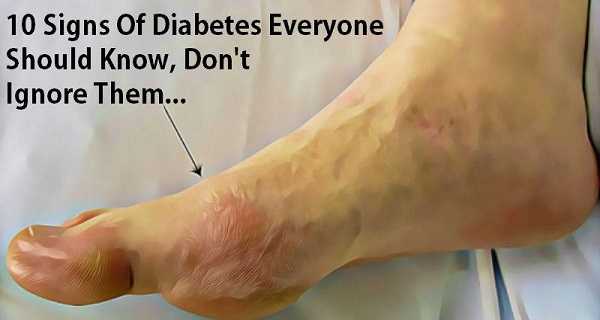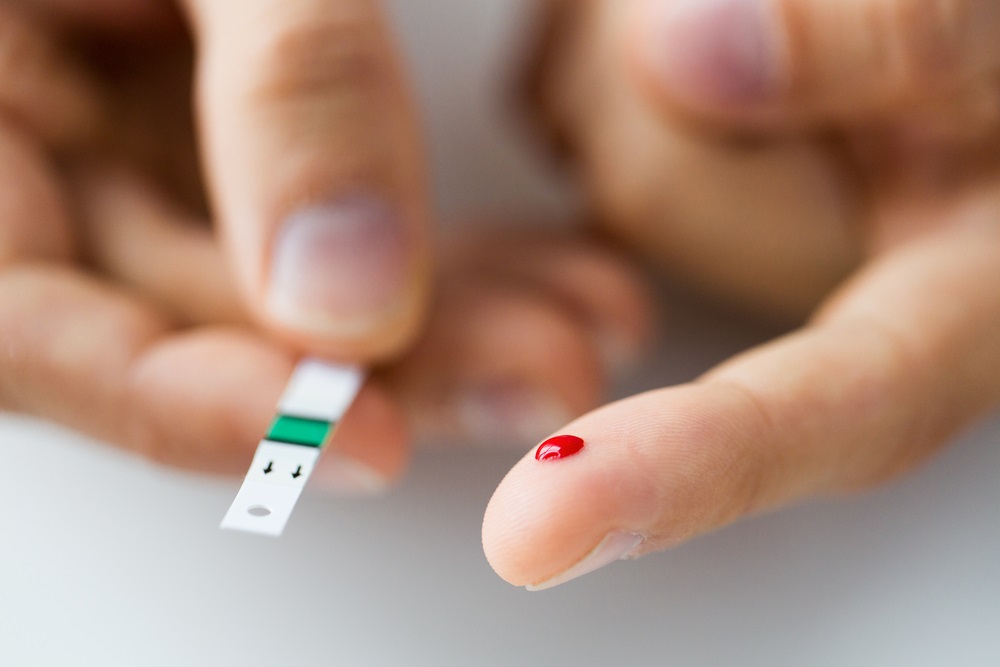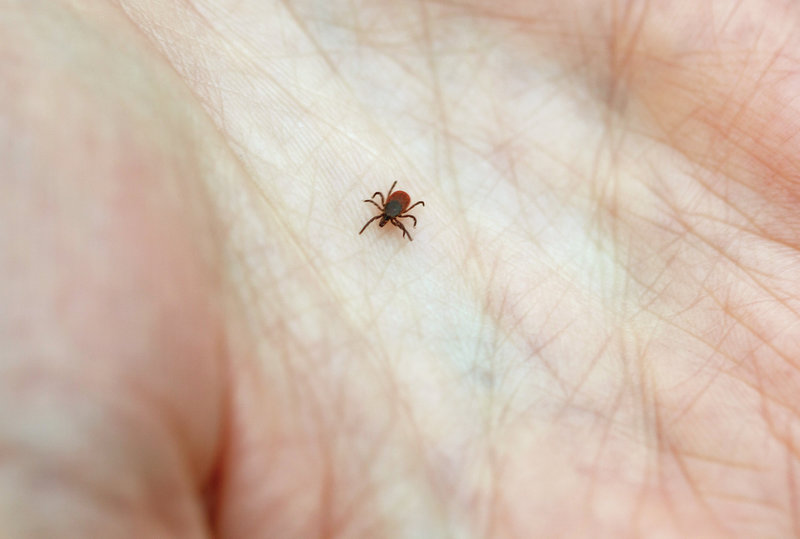10 Signs Of Diabetes Everyone Should Know, Don’t Ignore Them
Diabetes also known as diabetes mellitus is a metabolic disease and it is characterized by high blood sugar levels.
Beginning from 2014, around 387 million people from the entire world have diabetes problems.
Diabetes happens when the pancreas does not produce enough insulin or the cells are actually not completely able to respond properly to the production of insulin. There are 3 main types of diabetes:
Type 1 diabetes: it is also known as juvenile diabetes and it happens when the pancreas cannot produce enough insulin.
This is an autoimmune disease. Factors which increase the risk of Type 1 diabetes can be family history, the presence of damaging immune system cells in your body, exposure to viral disease and low vitamin D levels.
Type 2 diabetes: this is the most common diabetes type and it happens when the pancreas is not able to produce enough insulin for regulation of the blood sugar or the cells are not able to use the insulin properly.
Inactive lifestyle, obesity, aging, family history, history of gestational diabetes, high blood pressure, polycystic ovary syndrome, and abnormal triglyceride cholesterol and triglyceride levels are some of the most common risk factors for this kind of diabetes.
Gestational diabetes: It happens after pregnancy and there is no diabetes history. Women who are older than 25 and Hispanic, African-American, Asian and American have higher risk of developing this kind of diabetes.
The risk of this type of diabetes can become higher if the person has diabetes or obesity. Starting from 2014, around 90% of diabetic people has type 2 diabetes and it represents 8.3% of the adults. Men and women can developer Type 2.
Diabetes is usually called a silent killer and the reason is because the symptoms are easy-to-miss. A lot of people actually are not aware that they have diabetes, because the early diabetes symptoms can seem harmless.
If you discover it early and treat it you can prevent severe complications such as nerve damage, cardiovascular disease, eye damage, kidney damage, skin problems, foot damage and pregnancy complications.
Additionally there are different risk factors that can cause to diabetes developing and you should not avoid them:
- Smoking
- Overweight
- Being physically inactive
- Following an unhealthy diet that contains a lot of red meat, processed foods, and unhealthy fats
It is important to make changes in your lifestyle and stay constantly active.
We present you 10 early warning signs of diabetes. Do not ignore them.
1. EXCESSIVE AND/OR FREQUENT URINATION
This is one of the earliest signs of diabetes: Type 1 and Type 2 diabetes. If you urinate an abnormal amount of urine you should consider it as a sign. It is medically known as polyuria.
If you have diabetes, excess sugar is going to be built up in your blood. You kidney will have to work harder in order to absorb and filter all the glucose.
While this happens, the excess glucose will be excreted in the urine, and it will soak up all fluids drawn from the tissues. This can cause abnormal urination.
If you constantly need to urinate, and if that mostly happen during night it means that you have to see your doctor.
2. BEING CONSTANTLY THIRSTY
If you feel constantly thirsty it means that you have diabetes. Because of frequent urination, you body will become dehydrated, and you will feel thirsty constantly.
If you consume sugary beverages such as soda, juice, chocolate milk to in order to quench thirst, you will end up having more sugar in your body and this will make you even more thirst.
If you are feeling thirsty because of the high blood sugar levels, you will not satisfy thirst by drinking sugar drinks. If you are constantly thirsty and if you do not satisfy it with water you have to see your doctor.
3. HUNGER PANGS
If you have constant hunger pangs it means that you might have diabetes. If a person suffers from diabetes, they can feel more hungry than before usual and you can eat more. The reason is because your body won’t be able to regulate glucose which is used as energy by your cells.
If the cells experience lack of glucose, the body is going to automatically seek for more sources of fuel and this will cause persistent hunger. Additionally, if you eat more the hunger won’t disappear, because this is going to raise the blood sugar levels even more.
This means that if you at more you can worsen the problem. That is why you have to consult with your doctor.
4. WOUND THAT HEAL SLOWLY
Scrapes and cuts will heal slowly. This happens among people who are diabetic.
High blood sugar is going to harden the arteries and the blood vessels will become narrower than before. This is going to cause less blood flow and oxygen to the wounded area and that is why it will take more time for the time to heal.
Additionally, raised blood sugar will have a direct impact on the functions of red blood cells which are responsible for carrying nutrients to the tissue, which also slows the wound healing.
5. RECURRING INFECTIONS
If you have high blood sugar you can become highly susceptible to different infections. One of the most common infections sites among diabetic patients is the urinary tract and skin.
People with diabetes suffer from infections, and in some cases the infection can recur. This mostly happens because the immune system is weakened.
One study from 2012 that was published in the Indian Journal of Endocrinology and Metabolism says that people who have diabetes can develop more diseases.
If you get infections constantly, you have to check if you have diabetes. You can discover that by checking your blood.
6. UNEXPLAINED WEIGHT LOSS
Obesity can be a sign of diabetes, but shedding pounds even if you do not try can also mean you have the disease.
In this cases weight loss can happen for 2 reasons: excess water loss in your body because of frequent urination or your body is not able to absorb all calories from the sugar in your blood.
Additionally, lack of insulin will compel the body to break down protein from the muscles and this will serve as an alternate source of fuel, which can cause sudden weight loss. People with Type 1 and Type 2 diabetes, experience drastic weight loss.
7. FATIGUE AND WEAKNESS
Fatigue is very common symptom of diabetes and it can interfere and disrupt different aspects of your everyday life.
Because of high blood glucose levels, your body is not able to give proper answer to the insulin and the cells won’t be able to absorb the blood glucose. As a result you will feel fatigue and weakness.
Because of improper blood circulation your cells will not be able to get the required nutrients and oxygen for feeling energetic. Additionally, high blood glucose can lead to inflammation and this can cause fatigue.
One study from 2014 that was published in Diabetes Care says that chronic fatigue is clinically relevant and highly prevalent among people who have Type I diabetes. It is important to follow constant fatigue and visit the doctor.
8. NUMBNESS AND TINGLING SENSATIONS
Numbness and tingling sensations are known as warning signs of diabetes. Having high blood sugar levels can restrict proper blood flow to your extremities and in the end it can damage the nerves. This can become very severe problem and interrupt the nerve fibers.
If you do not control the high sugar levels you can develop peripheral arterial disease and this happens because of poor circulation, or maybe diabetic peripheral neuropathy, because of the nerve damage. If you experience loss of sensation in the arms or tingling you should visit your doctor.
9. ITCHY AND DRY SKIN
Because diabetes is the reason for poor circulation, the sweat glands can become dysfunctional and the result will be excessively dry skin.
Additionally your skin will become itchy as well. Along with dryness, your skin may become excessively itchy. This happens because of yeast infection, poor circulation and dry skin and tit mostly affects the lower leg parts.
In some cases diabetes might cause dark patches in the skin folds around your neck, armpits and groin area. In case you have itchy and dry skin, even though you use moisturizers you should consult with your doctor.
Source: MyCleanMedicine
“10 Signs Of Diabetes Everyone Should Know, Don’t Ignore Them” by:STEPHAN


